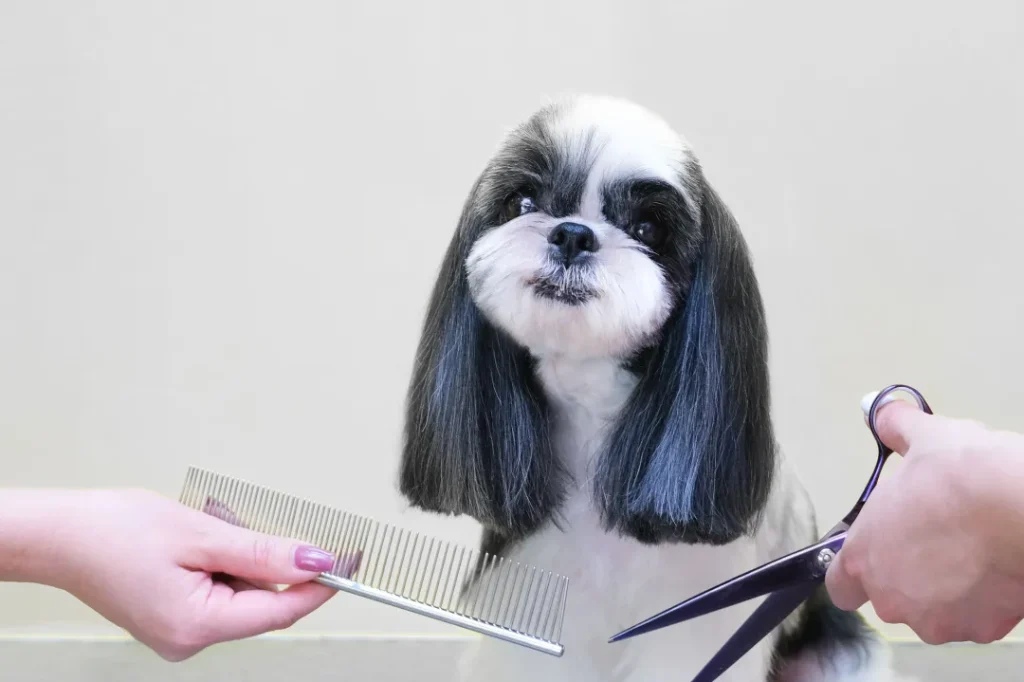Grooming is not just about maintaining your pet’s appearance it is also crucial for their overall health and well-being. Regular grooming sessions not only keep your pet looking tidy and presentable but also help prevent various health issues. Here are some essential tips to ensure your furry friend stays looking and feeling great. By incorporating these essential grooming tips into your pet care routine, you will not only enhance their appearance but also contribute to their overall well-being and happiness.
Brushing – Regular brushing is essential for all pets, regardless of their fur length. Brushing helps remove loose hair, prevents matting, and stimulates circulation to the skin. For long-haired breeds, daily brushing is ideal to prevent tangles and mats, while short-haired breeds can benefit from brushing a few times a week. Use appropriate brushes and combs designed for your pet’s coat type to avoid discomfort or damage to the skin and fur.
Bathing – While bathing frequency depends on your pet’s breed and lifestyle, it is generally recommended to bathe them every 4-6 weeks. Use a mild pet shampoo and lukewarm water to avoid drying out their skin. Be sure to rinse thoroughly to remove all traces of shampoo, as leftover residue can cause skin irritation. After bathing, gently towel dry your pet or use a blow dryer on a low setting to prevent chilling and go now http://www.samstern.co.uk/blog/tiramisu-blondies/.

Nail Care – Regular nail trimming is crucial to prevent overgrowth, which can lead to discomfort and difficulty walking. Trim your pet’s nails every 2-4 weeks, depending on their activity level and the rate of nail growth. Use pet-specific nail clippers and be cautious not to cut into the quick, which can cause bleeding and pain. If you are unsure about how to trim your pet’s nails safely, consult your veterinarian or a professional groomer.
Dental Hygiene – Maintaining good oral hygiene is essential for your pet’s overall health. Brush your pet’s teeth regularly with a pet-safe toothbrush and toothpaste to prevent plaque buildup and gum disease. Dental treats and toys designed to promote chewing can also help reduce tartar and freshen breath. Additionally, schedule regular dental check-ups with your veterinarian to monitor your pet’s oral health and address any issues promptly.
Ear Cleaning – Regular ear cleaning is essential, especially for breeds prone to ear infections. Use a veterinarian-approved ear cleaner and cotton balls to gently wipe away dirt and wax from your pet’s ears. Avoid using cotton swabs, as they can push debris further into the ear canal and cause injury. If you notice any signs of infection, such as redness, swelling, or a foul odor, consult your veterinarian for proper diagnosis and treatment.
Regular Vet Check-ups – In addition to regular grooming, schedule routine veterinary check-ups to ensure your pet’s overall health and well-being. Your veterinarian can assess your pet’s weight, dental health, and address any concerns you may have regarding grooming or behavior. Vaccinations, parasite prevention, and other preventative measures are also essential aspects of your pet’s healthcare routine.